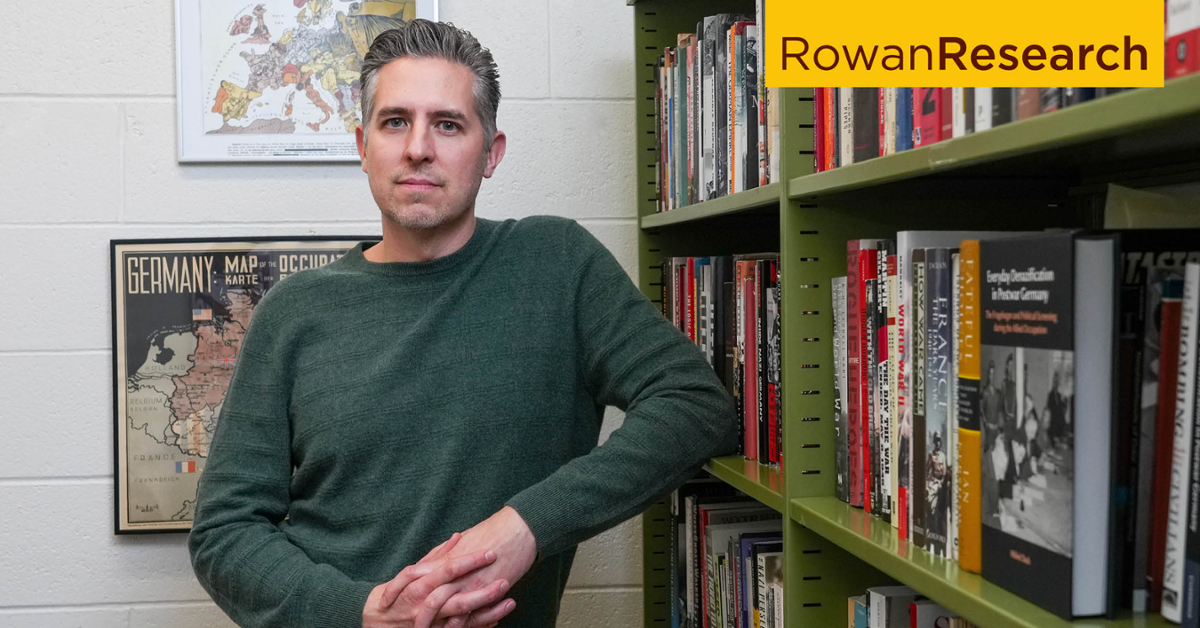Addressing right-wing extremism by applying lessons of the past
Addressing right-wing extremism by applying lessons of the past

Mikkel Dack, Ph.D.
Historian
Areas of expertise:
Fascism, deradicalization, democratization, countering violent extremism
More informationMikkel Dack, associate professor of history in the Ric Edelman College of Communication, Humanities & Social Sciences, is analyzing these attempts and their deficiencies.
Recipient of the Harry F. Guggenheim Distinguished Scholar Award, Dack is writing a book, tentatively titled “Fighting Fascism: The Global Campaign to Eliminate Violent Extremism After WWII.” Additionally, he’s building The Global De-Radicalization Database, a digital inventory of historical undertakings to reduce, eliminate and prevent violent political extremism.
“The literature on democratization and political extremism and violence is vast, and it’s growing very quickly because of the times we live in,” said Dack, author of “Everyday Denazification in Postwar Germany” (Cambridge University Press, 2023) and director of research, Rowan Center for the Study of the Holocaust, Genocide & Human Rights. However, according to Dack, the literature is dominated by psychologists, sociologists, political scientists and others, with little analysis from historians.
Although these perspectives are essential, “very few people have asked what has been attempted in the past to reduce and prevent violent extremism, what has worked and what hasn’t worked,” he said. “It’s frustrating to see projects to deradicalize the political climate repeated without applying lessons from the past.”
Dack is recruiting deradicalization experts to develop the database and determine the best way to organize and access these records. He hopes policymakers, researchers, students and law enforcement agencies will be able to draw from the database. He plans to apply for research grants to further the project.
“I want to show the importance of history and how it points us in certain directions,” Dack said. “We become more attuned to the present by understanding the past.”
Rowan University researchers are passionate about what they do. Find more at Meet Our Researchers.